Building a car transporter trailer requires meticulous planning, precise engineering, and quality materials to ensure safety and efficiency. At CarMax Vehicle, we specialize in designing and manufacturing high-performance trailers tailored to meet diverse transportation needs. This guide delves into the step-by-step process of constructing a car transporter trailer, incorporating industry best practices and innovative techniques to help you achieve superior results.
Understanding the Basics of Car Transporter Trailers
What is a Car Transporter Trailer?
A car transporter trailer, also known as a car hauler or auto trailer, is a specialized trailer designed to transport multiple vehicles securely from one location to another. These trailers are essential for automobile dealerships, logistics companies, and individual car enthusiasts who require reliable transportation solutions.

Types of Car Transporter Trailers
There are primarily two types of car transporter trailers:
Open Trailers: These are the most common type, characterized by an open framework that allows for easy loading and unloading of vehicles. They are cost-effective and versatile, suitable for transporting a variety of vehicle sizes.
Enclosed Trailers: These trailers offer protection from the elements, making them ideal for high-value or luxury vehicles. They provide a secure environment, safeguarding the transported cars from weather conditions and potential theft.
Key Components of a Car Transporter Trailer
- Frame: The foundation of the trailer, typically constructed from high-strength steel or aluminum.
- Axles and Suspension: Ensure stability and smooth transportation, capable of supporting heavy loads.
- Hitching Mechanism: Connects the trailer to the towing vehicle securely.
- Loading Ramps: Facilitate the easy loading and unloading of vehicles.
- Tie-Down Points: Provide secure attachment points for straps and chains to prevent vehicle movement during transit.
- Lighting and Electrical Systems: Ensure visibility and compliance with road safety regulations.
Step-by-Step Guide to Building a Car Transporter Trailer
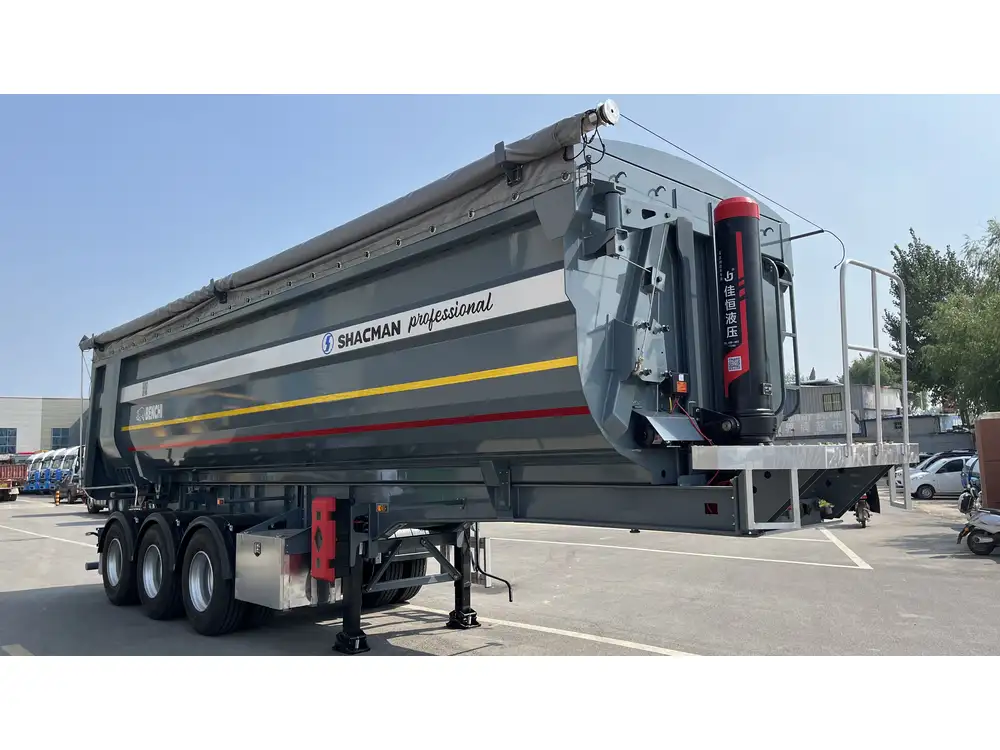
1. Planning and Design
Define Your Requirements
Begin by outlining the specific requirements for your trailer:
- Load Capacity: Determine the maximum number of vehicles and their combined weight.
- Dimensions: Decide on the length, width, and height based on the size of vehicles to be transported.
- Type: Choose between an open or enclosed design based on your protection needs.
- Regulatory Compliance: Ensure the design adheres to local transportation laws and safety standards.
Create Detailed Blueprints
Develop comprehensive blueprints that include:
- Structural Layout: Detailed drawings of the frame, axles, suspension, and hitching points.
- Electrical Schematics: Wiring diagrams for lighting and other electrical components.
- Material Specifications: List of materials required, including type, grade, and quantity.
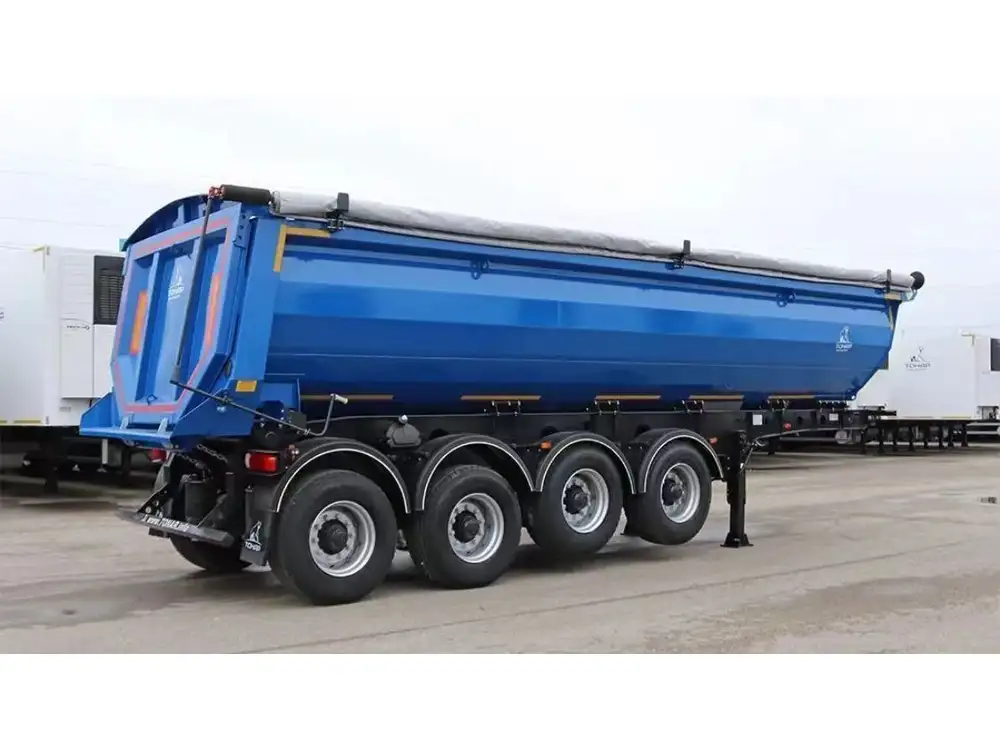
2. Procuring Materials
Selecting high-quality materials is crucial for the durability and safety of your trailer:
| Component | Recommended Material | Specifications |
|---|---|---|
| Frame | High-strength steel or aluminum | Consider weight-to-strength ratio |
| Axles | Heavy-duty steel | Rated for maximum load capacity |
| Suspension | Leaf or torsion axles | Ensure compatibility with trailer weight |
| Ramps | Reinforced steel | Non-slip surface with secure locking mechanisms |
| Tie-Down Points | Durable steel brackets | Strategically positioned for balance |
| Electrical Systems | Corrosion-resistant wiring and LEDs | Waterproof connectors for longevity |
3. Fabricating the Frame
Cutting and Shaping
Using your blueprints, accurately cut the frame materials to the required lengths and shapes. Precision in this step is vital to ensure the structural integrity of the trailer.

Assembling the Frame
Weld the cut pieces together, forming a robust and rigid structure. Pay close attention to weld quality to prevent weak points that could compromise safety.
4. Installing Axles and Suspension
Axle Installation
Mount the axles onto the designated spots on the frame, ensuring they are securely fastened. Proper alignment is essential for balanced weight distribution and vehicle stability during transport.
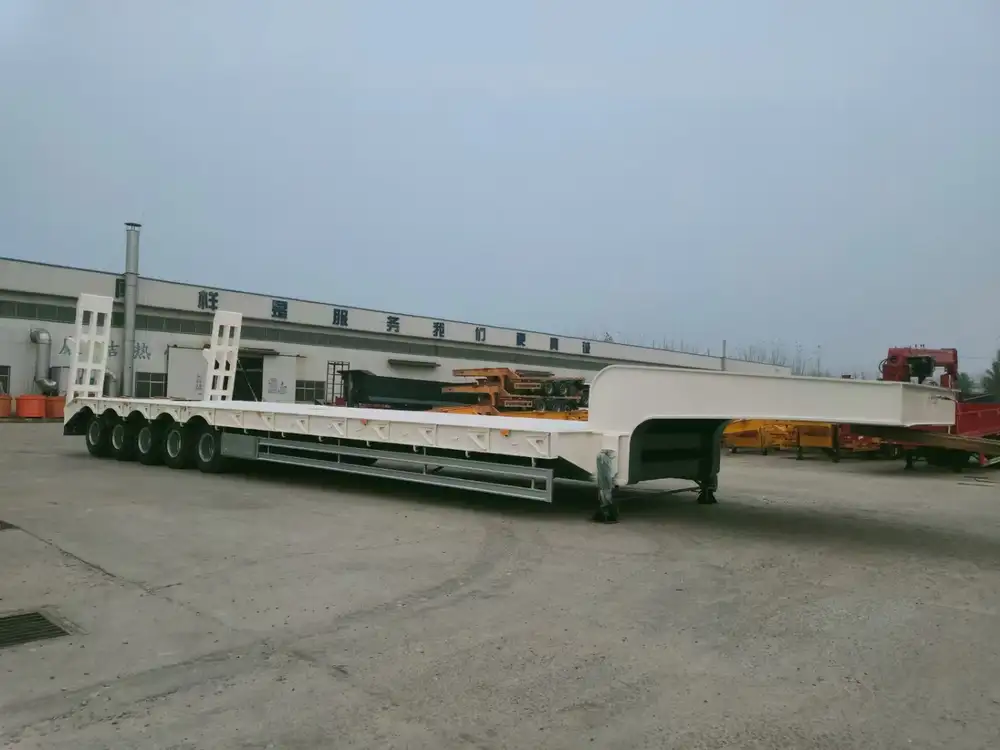
Suspension Setup
Install the suspension system, whether leaf spring or torsion, based on your design. A well-designed suspension enhances ride smoothness and reduces wear on both the trailer and the towing vehicle.
5. Attaching the Hitch Mechanism
Securely install the hitch mechanism to the trailer frame. This component must withstand dynamic forces during transit, so use high-grade materials and precise welding techniques.
6. Installing Loading Ramps
Attach the loading ramps to the trailer, ensuring they are durable and have a non-slip surface. The ramps should be easy to deploy and retract, facilitating quick and safe vehicle loading and unloading.

7. Setting Up Tie-Down Points
Install tie-down points at strategic locations across the trailer platform. These points are crucial for securing vehicles and preventing movement during transportation.
8. Wiring the Electrical System
Lighting Installation
Install LED lights at the front, rear, and sides of the trailer to ensure visibility. Follow electrical schematics to connect the lighting system to the towing vehicle’s power supply.
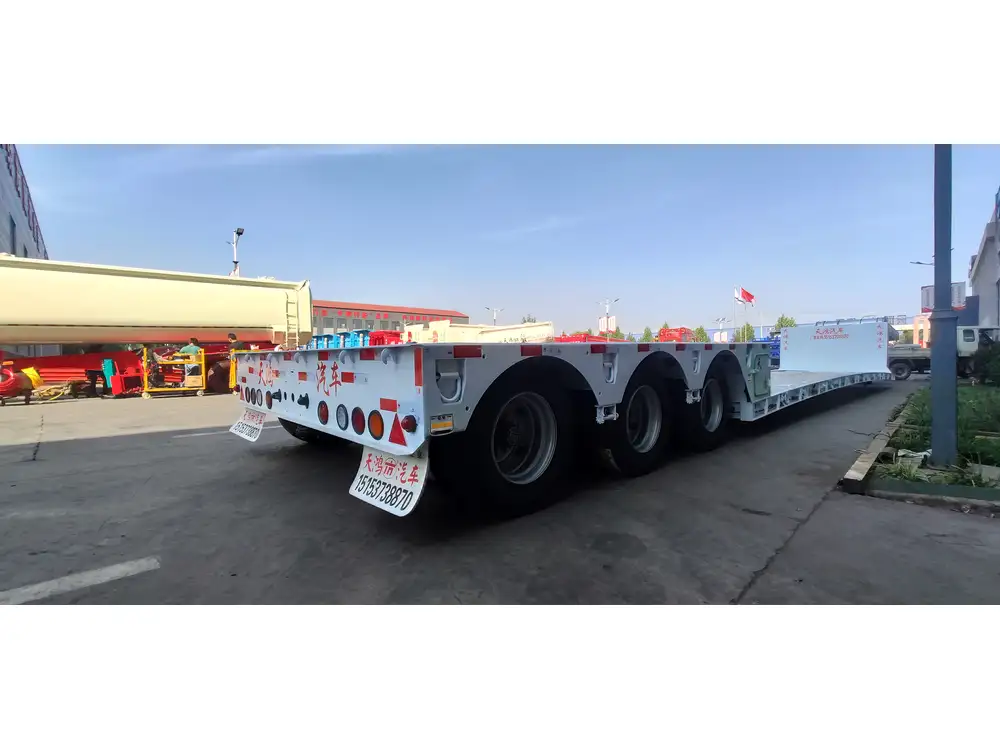
Brake and Signal Integration
Integrate the trailer’s brake and signal systems with the towing vehicle. This ensures synchronized braking and turn signals, enhancing safety on the road.
9. Finishing Touches
Painting and Coating
Apply a high-quality paint or protective coating to the trailer to prevent rust and corrosion. Choose colors that enhance visibility and aesthetic appeal.

Safety Checks
Conduct thorough safety inspections to verify the structural integrity, electrical functionality, and overall readiness of the trailer for operation.
Essential Tools and Equipment for Trailer Construction
Embarking on building a car transporter trailer demands the right set of tools and equipment to ensure precision and efficiency:
- Welding Equipment: For assembling the frame and securing components.
- Metal Cutting Tools: Such as saws and plasma cutters for shaping materials.
- Measuring Tools: Including tape measures, calipers, and levels for accuracy.
- Drilling Machines: For creating precise holes in the frame and other components.
- Fasteners and Hardware: High-strength bolts, nuts, and screws to maintain structural integrity.
- Electrical Tools: Wire strippers, connectors, and testers for the electrical system.
Safety Considerations in Trailer Construction
Safety is paramount when building and operating a car transporter trailer. Adhere to the following guidelines:

Structural Integrity
Ensure all welds and joints are strong and free from defects. Use high-strength materials and conduct regular inspections to maintain structural integrity.
Weight Distribution
Proper weight distribution prevents trailer sway and reduces strain on the towing vehicle. Distribute vehicles evenly and utilize tie-down points effectively.
Brake Systems
Install reliable brake systems that are compatible with the towing vehicle. Regularly test brakes to ensure they respond promptly during emergencies.
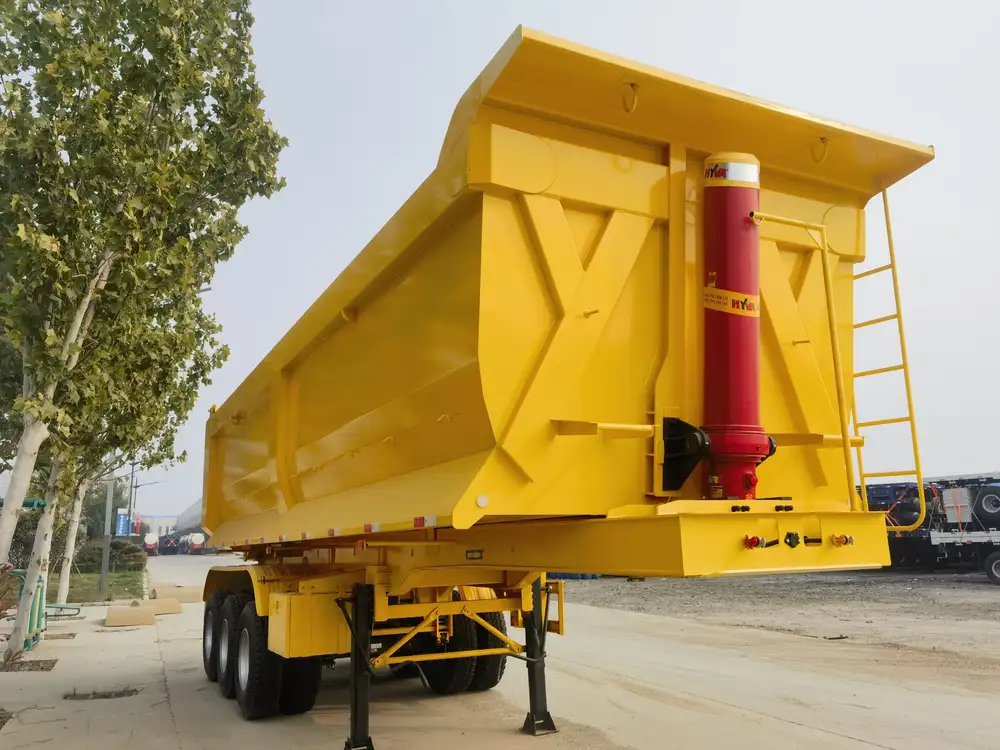
Electrical Safety
Use waterproof connectors and secure wiring to prevent electrical failures. Regularly inspect the electrical system for wear and tear.
Compliance with Regulations
Stay informed about local transportation laws and safety standards. Ensure your trailer meets all legal requirements to avoid penalties and ensure safe operation.
Cost Analysis: Building vs. Buying a Trailer
When deciding whether to build or buy a car transporter trailer, consider the following factors:
| Aspect | Building a Trailer | Buying a Trailer |
|---|---|---|
| Initial Cost | Potentially lower with DIY efforts | Higher upfront cost for pre-built models |
| Customization | High, tailored to specific requirements | Limited to available options |
| Time Investment | Significant time for planning and building | Immediate availability |
| Quality Control | Dependent on skills and materials used | Consistently high quality from manufacturers |
| Maintenance | Responsibility of the builder | Covered under manufacturer warranties |
Building a trailer offers customization and potential cost savings, especially for those with the necessary skills and resources. However, purchasing a trailer from a reputable manufacturer like CarMax Vehicle ensures reliability, quality, and after-sales support.
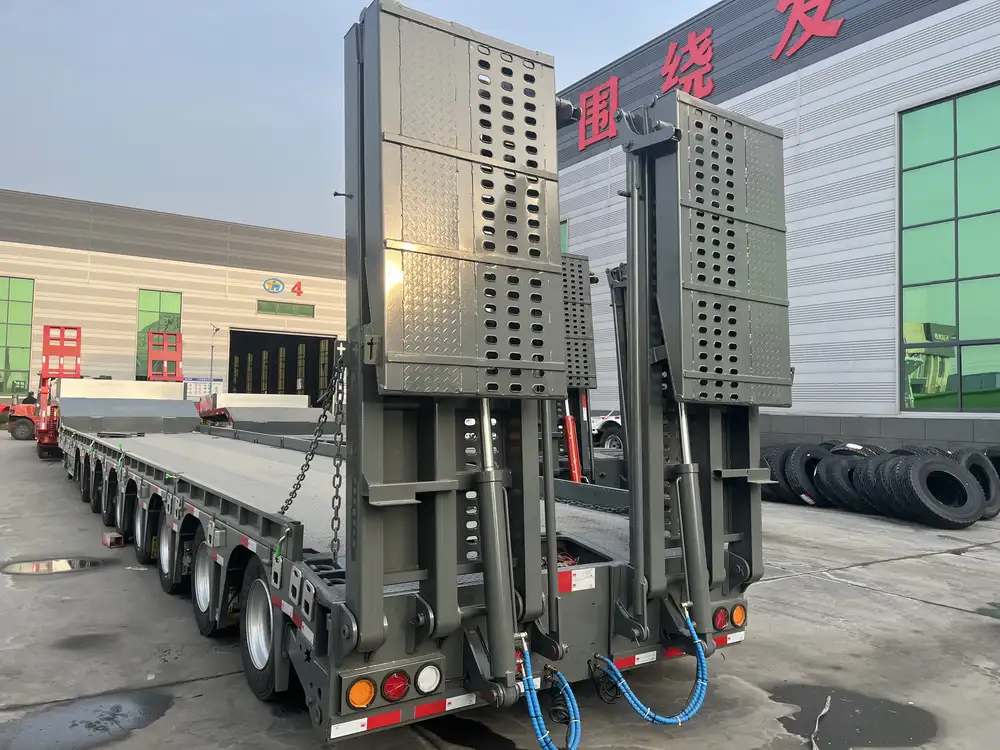
Enhancing Efficiency with Advanced Features
Incorporating advanced features can significantly enhance the functionality and efficiency of your car transporter trailer:
Automatic Load Leveling Systems
These systems adjust the trailer’s height to maintain a level load, reducing strain on the towing vehicle and improving fuel efficiency.
Integrated Tracking Systems
GPS-based tracking systems provide real-time location data, enhancing security and allowing for efficient route planning.
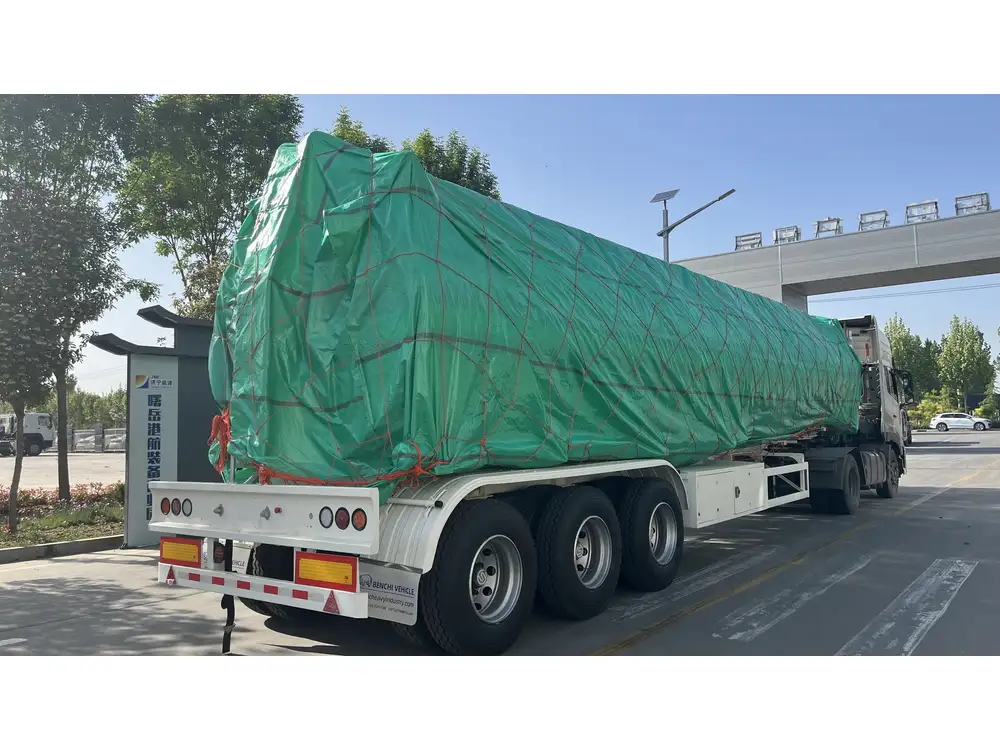
Aerodynamic Designs
Streamlined designs reduce air resistance, improving fuel economy and reducing operational costs.
Modular Components
Modular designs allow for easy customization and adaptation to different transportation needs, providing flexibility and longevity.
Maintenance Tips for Longevity and Performance
Proper maintenance is essential to ensure the longevity and optimal performance of your car transporter trailer:

Regular Inspections
Conduct routine inspections to identify and address potential issues before they escalate. Focus on critical components like brakes, tires, and electrical systems.
Cleaning and Protection
Keep the trailer clean and free from debris. Apply protective coatings to prevent rust and corrosion, especially in harsh weather conditions.
Lubrication
Regularly lubricate moving parts, such as the hitch mechanism and suspension, to prevent wear and ensure smooth operation.

Tire Care
Maintain proper tire pressure and inspect for signs of wear. Replace tires as needed to ensure safe and efficient transportation.
Electrical System Maintenance
Check all electrical connections and components regularly. Address any malfunctions promptly to prevent safety hazards.
Choosing the Right Materials for Durability
The choice of materials significantly impacts the durability and performance of your trailer:
| Component | Recommended Materials | Benefits |
|---|---|---|
| Frame | High-strength steel or aluminum | Lightweight yet robust, resistant to corrosion |
| Axles | Heavy-duty steel | Enhanced load-bearing capacity |
| Suspension | Durable alloys | Long-lasting performance under stress |
| Ramps | Reinforced steel or aluminum | Increased strength and reduced weight |
| Tie-Down Points | Galvanized steel brackets | Prevent rust and ensure longevity |
| Electrical Systems | Waterproof and corrosion-resistant materials | Reliable performance in various conditions |
Selecting materials that offer a balance between strength, weight, and resistance to environmental factors ensures that your trailer remains reliable and efficient over time.
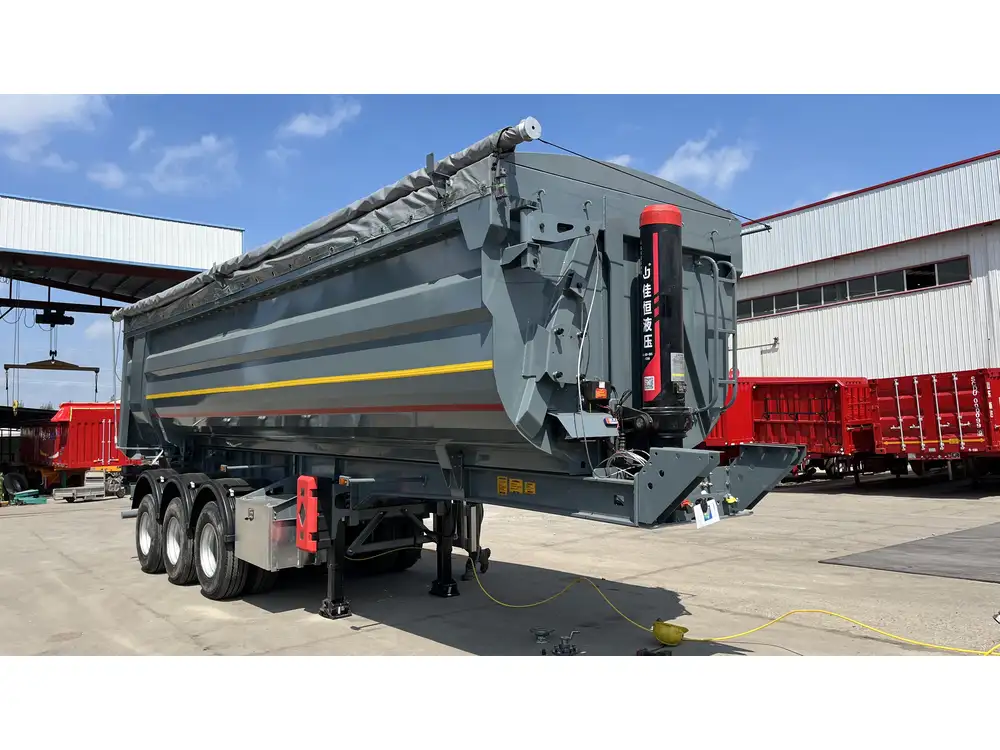
Integrating Technology for Smart Trailers
Embracing technology can revolutionize the functionality and management of your car transporter trailer:
IoT Integration
Internet of Things (IoT) devices can monitor trailer conditions in real-time, providing data on load status, temperature, and location, thereby enhancing operational efficiency.
Automated Brake Systems
Automated brake systems respond dynamically to braking needs, improving safety and reducing wear on mechanical components.
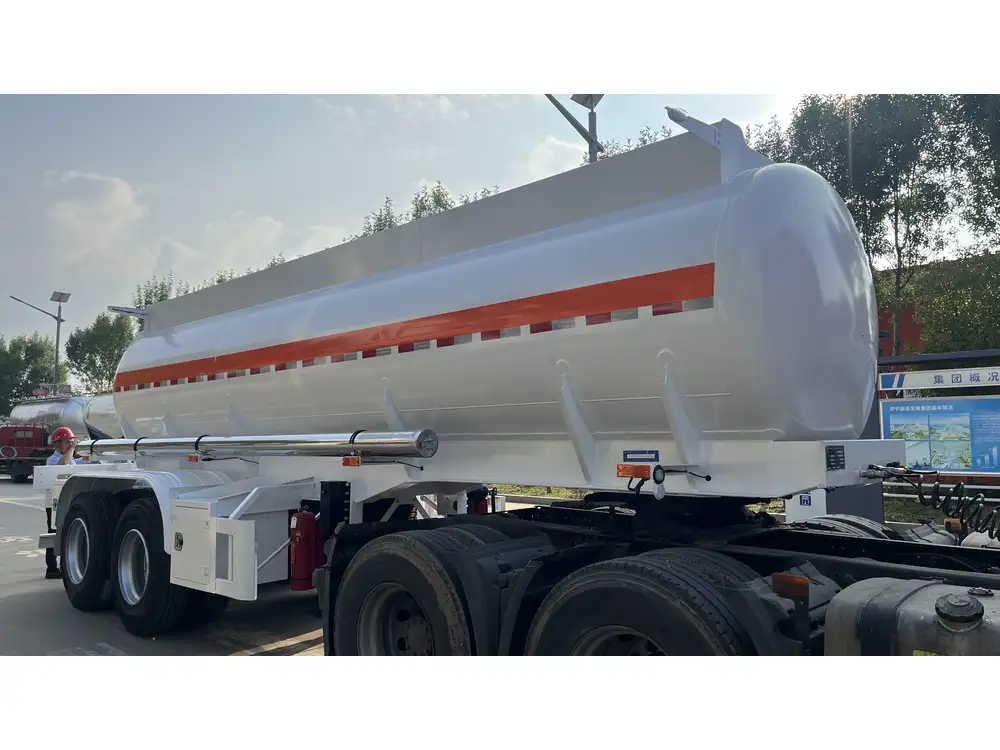
Smart Lighting Solutions
Adaptive lighting systems adjust brightness based on ambient conditions, enhancing visibility and safety during night operations or adverse weather.
Environmental Considerations in Trailer Design
Designing environmentally-friendly trailers is increasingly important in today’s sustainability-focused world:
Material Selection
Opt for recyclable and sustainable materials to minimize environmental impact. Aluminum, for instance, is highly recyclable and lightweight.

Fuel Efficiency
Design trailers that reduce drag and improve fuel efficiency, contributing to lower emissions and operational costs.
Energy-Efficient Lighting
Utilize LED lighting and other energy-efficient systems to reduce power consumption and extend battery life.
Sustainable Manufacturing Practices
Implement eco-friendly manufacturing processes, such as minimizing waste and using renewable energy sources, to enhance the sustainability of trailer production.

Customization Options for Tailored Solutions
At CarMax Vehicle, we understand that each transportation need is unique. We offer a range of customization options to ensure your trailer perfectly aligns with your requirements:
Adjustable Tie-Down Systems
Customize the placement and type of tie-down points to accommodate different vehicle sizes and weights.
Modular Ramp Systems
Choose ramps that can be easily adjusted or replaced to suit various loading and unloading scenarios.

Enhanced Security Features
Incorporate advanced locking mechanisms and surveillance systems to safeguard your transported vehicles.
Aesthetic Customizations
Select from a variety of colors, finishes, and branding options to reflect your company’s identity and enhance visual appeal.
Case Study: Successful Implementation by CarMax Trailer

Project Overview
CarMax Trailer collaborated with a leading automobile dealership to design a custom car transporter trailer capable of handling high volumes of vehicles with minimal downtime.
Solutions Provided
- Customized Frame Design: Tailored to accommodate a diverse range of vehicle sizes.
- Advanced Suspension System: Ensured smooth transportation across varied terrains.
- Integrated Tracking and Monitoring: Enhanced fleet management and security.
Outcomes
- Increased Efficiency: Reduced loading and unloading times by 30%.
- Enhanced Safety: Zero incidents reported during transit over a six-month period.
- Customer Satisfaction: Heightened trust and repeat business from the dealership.

Future Trends in Car Transporter Trailer Manufacturing
Automation and Robotics
The integration of automation and robotics in trailer manufacturing streamlines production, enhances precision, and reduces costs.
Sustainable Materials
The shift towards sustainable and eco-friendly materials continues to gain momentum, aligning with global environmental goals.
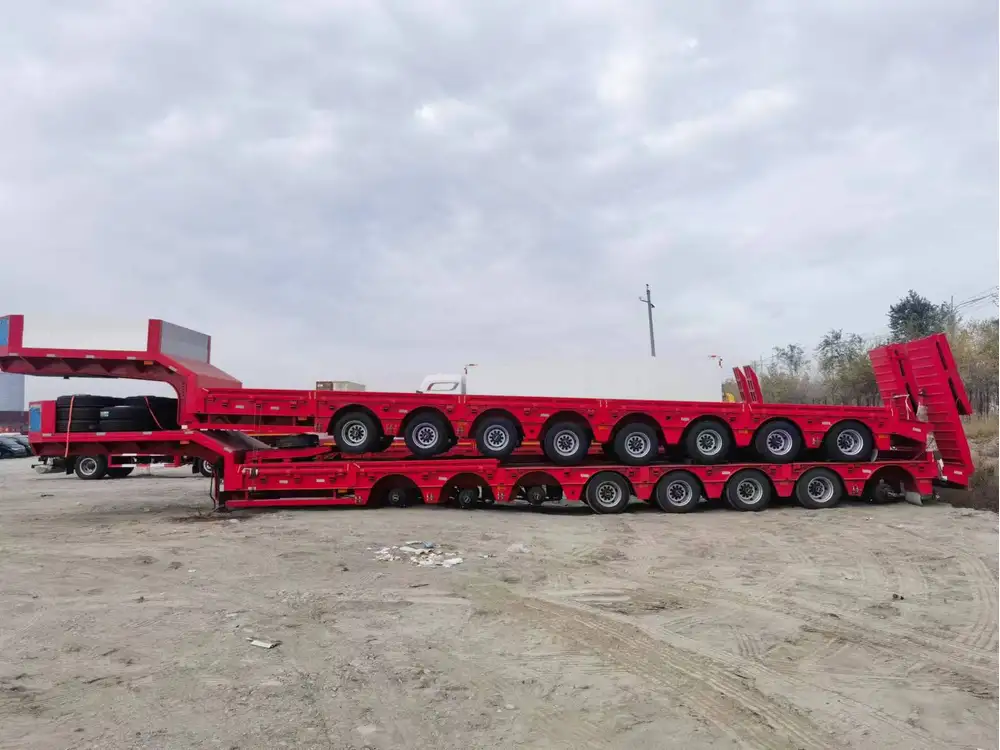
Smart Trailers
Advancements in smart technology will lead to more intelligent trailers capable of self-monitoring and autonomous adjustments, further enhancing safety and efficiency.
Lightweight Designs
Innovations in material science will drive the development of lighter, stronger trailers, improving fuel efficiency and reducing operational costs.
Conclusion
Building a car transporter trailer is a complex yet rewarding endeavor that demands careful planning, quality materials, and precise execution. At CarMax Vehicle, we are committed to providing the expertise and resources necessary to help you construct a reliable and efficient trailer tailored to your specific transportation needs. By following the comprehensive steps outlined in this guide and leveraging our industry-leading solutions, you can achieve exceptional results that stand the test of time.
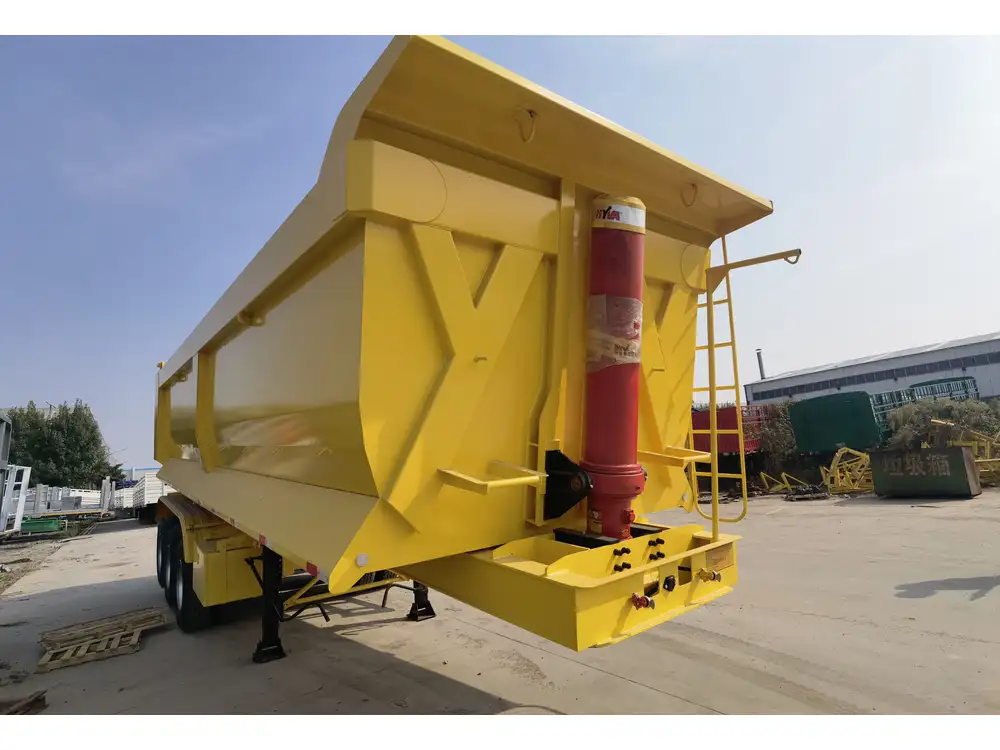
Frequently Asked Questions (FAQs)
1. What are the essential safety features to include in a car transporter trailer?
Key safety features include a robust braking system, reliable lighting, secure tie-down points, proper weight distribution mechanisms, and compliance with local transportation regulations.
2. How do I determine the appropriate size for my car transporter trailer?
Consider the number and size of vehicles you intend to transport, the combined weight, and the dimensions required to accommodate different vehicle types. Consulting with a trailer manufacturer can provide tailored recommendations.
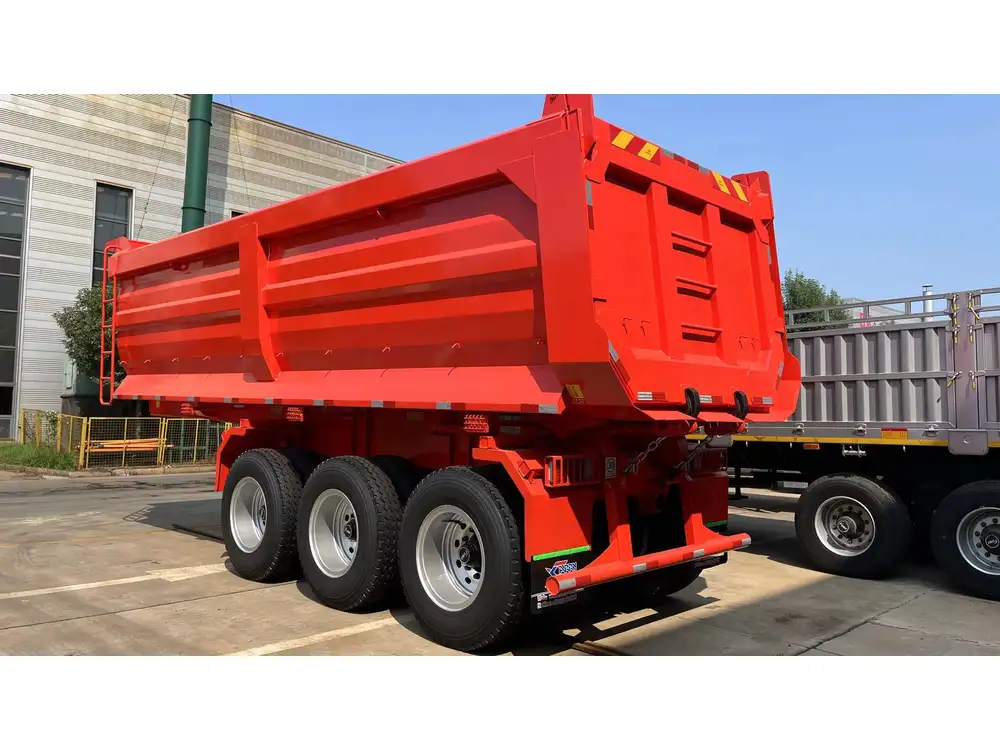
3. What maintenance practices are crucial for extending the lifespan of a car transporter trailer?
Regular inspections, timely repairs, routine lubrication of moving parts, maintaining proper tire pressure, and keeping the trailer clean and protected from the elements are essential for longevity and optimal performance.
4. Can I customize a trailer to transport specific types of vehicles?
Absolutely. Customization options include adjustable tie-down systems, specialized ramps, enhanced security features, and tailored frame designs to accommodate various vehicle sizes and weights.
5. What are the benefits of choosing CarMax Vehicle for my trailer needs?
CarMax Vehicle offers high-quality, customizable trailers designed with durability and efficiency in mind. Our expertise, advanced manufacturing processes, and commitment to customer satisfaction ensure that you receive a trailer that perfectly meets your transportation requirements.



